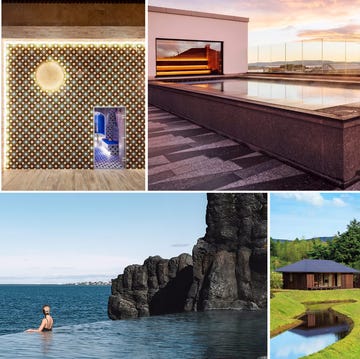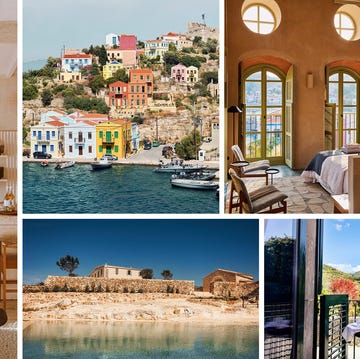Getting to know Tokyo now is less about big skyscrapers and the neon-lit frenetics of Shibuya Crossing and more about small hidden places where one person makes a few things really well. That was the lesson of Wim Wenders’s latest film, Perfect Days: Even though the main character lives in one of the most energetic cities in the world, his life is profoundly analog.
This appreciation for all things precious and retro is so bona fide in Tokyo that a vintage bookshop like Eureka gets as much street cred as the speakeasy Bar Nightingale. The cultish boutique Visvim General Store, opened two years ago by designer Hiroki Nakamura in several refurbished 1970s-era residences surrounding a meticulously designed garden, showcases brands like Indigo Camping Trailer, a clothing collection that aims to “possess a warmth and character” and that is made with natural dyes. Cafés inspired by traditional teahouses, like Higashiya, are the height of fashion.
Many of the latest noteworthy destinations are embracing a “slow aesthetic.” After a successful career in New York and London, the Michelin-starred chef Yoshinori Ishii returned to Japan to open his dream project last year: Auberge Tokito, an intimate, innovative Japanese restaurant with a Zen-like garden and four spacious guest rooms, each with a private open-air bath. “I spent 20 years overseas introducing the beauty of Japan’s artisanal culture to people,” Ishii says. “I re-recognized that Japan is a treasure in this fast-changing world, so I returned to Tokyo to open a small place where I can continue to work with my hands.”
The latest of the hipster Trunk hotel collective is a seven-story building with 20 rooms and five suites overlooking the expansive, leafy Yoyogi Park. It’s one of the coolest places to stay in the city; guests have to ring a bell to be let inside its serene interior.
And while two of Tokyo’s newest properties—Hotel Toranomon Hills and Janu Tokyo—are relatively big and are located in sparkling high-rises, each invested in world-class interior designers who are passionate about natural materials. Both hotels commissioned artists and artisans from around the country to fill their spaces. Signe Bindslev Henriksen, the Danish cofounder of Space Copenhagen, which designed Hotel Toranomon Hills, says,“We really tried to respect the Japanese aesthetic and the way they celebrate the small details and moments—especially now, when many of us are searching for meaning in our surroundings, because we are moving too fast.”
Even Tokyoites head to Kurkku Fields, a sustainable farm, restaurant, and retreat about an hour’s drive away that is also home to an art park and an underground library. It was dreamed up by music producer Takeshi Kobayashi in an effort to showcase a slower, more self-sufficient lifestyle. Guests can stay on the 74-acre property at Cocoon, which has six curved cabins with living roofs and a shared communal kitchen and sauna.
This article was originally featured in the May 2024 Issue of Harper’s Bazaar
















